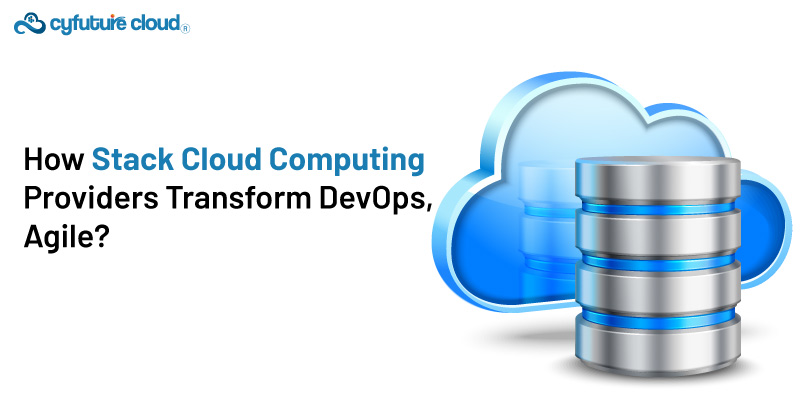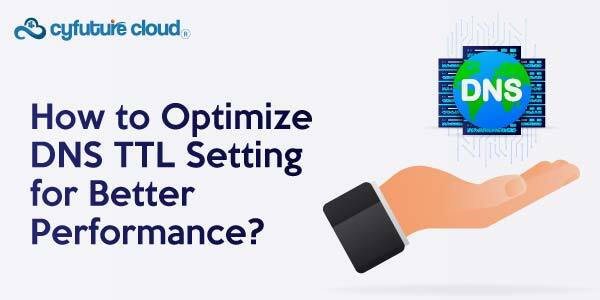Table of Contents
Data security is of the utmost importance for enterprises in the modern digital age. You query why. The risk of data breaches and cyber attacks is growing along with the amount of data that is generated, saved, and shared. Nearly 60% of business data, according to recent research, is stored in the cloud, putting it susceptible to possible cyber threats. Due to this, demand for encryption services, which offer another level of data security, has increased.
To prevent unwanted access, data must be transformed into a code or cipher through the process of encryption. It entails converting the original data into an unreadable format that can only be decrypted using a unique key using a sophisticated algorithm. Even if the data is intercepted during transmission or stolen from a device, encryption ensures that only authorized users may access it, so assisting in the security of the data.
On the other hand, cloud storage refers to the practice of keeping data on remote servers that may be accessed online. Scalability, cost-effectiveness, and accessibility are only a few benefits of this kind of storage. The fact that the information is kept on a server run by a third party and could not be as secure as the company’s own constitutes a serious security risk.
As a result, it is essential to encrypt data stored in the cloud to guarantee its confidentiality, integrity, and availability. Because encryption makes it harder for unauthorized users to view or modify the data, it helps to avoid data breaches and cyberattacks. The demand for reliable encryption services will only rise as more businesses migrate to cloud-based storage options.
Continue reading to delve into the subject of encryption for cloud storage and discover more about its significance and advantages.
The Increasing Demand for Cryptography
The growing awareness of the significance of data security has increased the demand for encryption services in recent years. Sensitive data is protected by encryption, which renders it unreadable to unauthorized users and lowers the possibility of data breaches and cyberattacks. Let’s examine the causes of the rising need for encryption in more detail.
Figures demonstrating the rise in demand for encryption
According to a survey by MarketsandMarkets, the global market for encryption software is predicted to increase at a 14.8% compound yearly growth rate (CAGR) from $7.5 billion in 2020 to $16.5 billion in 2026. The adoption of encryption by organizations has climbed from 42% in 2019 to 53% in 2020, according to a different Thales survey. These figures show how the demand for encryption services is rising in the current digital environment.
Justification for the rise in demand
There are many factors driving growing demand for encryption. First off, businesses are now more aware of the importance of safeguarding their sensitive data due to the rise in cyberattacks and data breaches. Businesses must take data security seriously because one data breach can result in severe financial losses, harm to a brand’s reputation, and legal repercussions.
Second, the expansion of cloud computing has also fueled a growth in encryption demand. Businesses are increasingly storing data on the cloud, making it more important than ever to secure its security. Encryption is a crucial tool for businesses because it helps shield data stored in the cloud from illegal access and eavesdropping.
Business importance of encryption
For organizations, encryption is essential for protecting sensitive data. It helps prevent sensitive data from getting into the wrong hands, including financial information, customer information, and trade secrets. Additionally, encryption guarantees that data saved on devices or transmitted across networks is safe and inaccessible to unauthorized users.
Additionally, encryption can assist companies in meeting legal obligations like the Health Insurance Portability and Accountability Act (HIPAA) and the General Data Protection Regulation (GDPR). These laws require companies to safeguard sensitive information and guarantee its availability, confidentiality, and integrity.
Businesses Can Benefit from Encryption
Businesses may secure their critical data with the use of encryption, which also lowers the danger of cyberattacks and data breaches. Let’s examine some of the advantages of encryption for organizations in more detail.
Safeguarding sensitive information
Protecting sensitive data from unauthorized access is one of encryption’s most important advantages. Sensitive data that businesses deal with frequently, like financial information, customer information, and intellectual property, can make them attractive targets for cybercriminals. This data is encrypted to keep it safe and prevent unauthorized parties from accessing it.
Meeting the obligations of regulatory compliance
Regulations that demand the safeguarding of sensitive data apply to many enterprises. For instance, while HIPAA compels healthcare institutions to protect patient health information, the GDPR mandates that enterprises protect the personal data of EU people. By ensuring that sensitive data is encrypted both in transit and at rest, encryption can assist businesses in complying with these rules.
Reducing the possibility of data breaches
For firms, data breaches can have serious financial and reputational repercussions. Because encryption makes it difficult for hackers to access sensitive data, it can help reduce the risk of data breaches. Without the proper decryption key, a hacker will not be able to read encrypted data, even if they are successful in intercepting it.
Keeping data honest
Businesses can use encryption to assist protect the data’s integrity. Businesses can avoid illegal data modification by encrypting data during both transmission and storage. For companies that deal with sensitive data, like financial or medical records, this is especially vital.
Techniques for Cloud Storage Encryption
There are numerous methods available for encrypting data for cloud storage. The best strategy to choose will rely on the unique requirements of the organization. Each technique offers benefits and drawbacks. Let’s examine a few of the most popular encryption methods for cloud storage.
Synthetic Key Encryption
The same key is used for both encryption and decryption in symmetric key encryption, sometimes referred to as shared secret encryption. This method is effective and quick, making it perfect for encrypting massive amounts of data. However, it can be difficult, especially in large organizations, to securely exchange the key among the people involved.
Asymmetric Key Encryption
Asymmetric key encryption, commonly referred to as public-key encryption, encrypts and decrypts data using two keys: a public key and a private key. Anyone who needs to encrypt data is given access to the public key, while the owner must keep the private key secret in order to decode it. Secure key distribution is not necessary with asymmetric key encryption because it is so secure. Nevertheless, it requires a lot of computer power and can be slow when encrypting huge amounts of data.
Homomorphic encryption
With the use of the cutting-edge encryption method known as homomorphic encryption, calculations can be made on encrypted material without first having to decrypt it. This method enables secure data processing in the cloud and is very secure. Real-time applications cannot use it since it might be slow and has high computing costs.
Evaluation of encryption methods
Each encryption method has its advantages and disadvantages, therefore it’s critical to pick the best one for the unique requirements of the organization. While symmetric key encryption is quick and effective, secure key distribution is necessary. Although highly safe, asymmetric key encryption is computationally demanding. Although homomorphic encryption is very secure and permits secure data processing, it can be expensive to implement and slow.
Limitations of Cloud Storage Encryption
While encryption is a good technique to safeguard sensitive data in cloud storage, it has some drawbacks. The most typical restrictions on encryption for cloud storage are listed below.
Key management
Key management is one of the most important restrictions on encryption for cloud storage. Businesses must make sure that encryption keys are stored securely and are only accessible to authorized individuals because they are required to encrypt and decode data. This can be difficult, especially in big organizations where many employees can need access to the same information.
Performance problems
Performance problems can arise with encryption, especially when encrypting and decrypting huge volumes of data. For enterprises that need quick data access and transfer, this may result in poor data transfer rates and longer processing times.
User error
User error is another drawback of encryption for cloud storage. Users’ encryption keys could be mistakenly deleted or misplaced, making their encrypted data inaccessible. Users could also neglect to properly encrypt their data, leaving it open to attackers.
Evaluation of restrictions
Each encryption for cloud storage restriction has a unique effect on the data’s security and usefulness. User error can make data unavailable or susceptible, key management issues can result in unauthorized access to data, performance problems can slow down data access and transmission, and all of these things have the potential to have a serious negative impact on the organization.
Conclusion
For the protection of sensitive data in cloud storage, encryption is a vital instrument. The need for encryption has grown considerably as more companies shift their data to the cloud. It’s crucial to pick the best encryption method for the demands of the organization because several methods, including symmetric key encryption, asymmetric key encryption, and homomorphic encryption, can offer differing levels of security and usefulness.
Businesses can benefit from encryption in a number of ways, including by using it to safeguard sensitive information, comply with legal obligations, reduce the risk of data breaches, and guarantee data integrity. Encryption does, however, have several drawbacks, such as key management challenges, performance issues, and the possibility of human error.
In terms of cloud storage security in the future, encryption will continue to be essential. Encryption will be necessary to protect sensitive information as cyber attacks become more sophisticated and data becomes more valuable. We can anticipate ongoing innovation in encryption methods as technology advances, making it simpler and more effective to secure data in the cloud.
In conclusion, businesses must carefully assess their encryption needs and restrictions to preserve the security and integrity of their data. Encryption is a crucial tool for securing data in cloud storage.
Send this to a friend

 Server Colocation
Server Colocation CDN Network
CDN Network Linux Cloud Hosting
Linux Cloud Hosting Kubernetes
Kubernetes Pricing Calculator
Pricing Calculator
 Power
Power
 Utilities
Utilities VMware Private Cloud
VMware Private Cloud VMware on AWS
VMware on AWS VMware on Azure
VMware on Azure Service Level Agreement
Service Level Agreement 



















